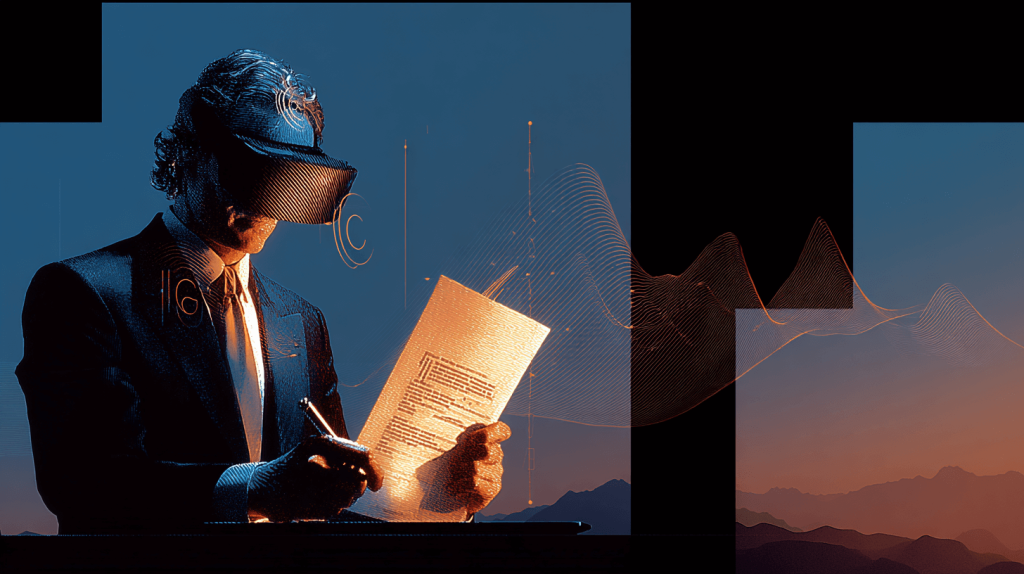Are you concerned about your innovative software being copied or misused in the competitive tech startup space? A software patent attorney is your first line of defense in securing your intellectual property. The disappointment of seeing your groundbreaking work exploited by competitors without any legal recourse can be devastating, leaving your startup vulnerable and your potential profits at risk. This guide serves as your solution, demonstrating the critical role of a software patent attorney in protecting your startup’s innovation. Learn how to effectively patent your software and secure the expert legal assistance you need to maintain your competitive edge.
In today’s rapidly evolving software industry, the need for robust patent protection has never been more critical for tech startups. As companies continue to innovate and introduce new technologies, the threat of intellectual property theft looms large. Building a strong patent portfolio is essential to protect your software innovations. A software patent attorney not only assists startups in navigating the complexities of patent law but also helps in crafting a comprehensive patent application that highlights the unique aspects of your invention. By securing patent protection, you gain exclusive rights to your software, preventing unauthorized use and ensuring that your business models remain intact.
Ultimately, finding the right software patent attorney is crucial to achieving your startup’s business goals. With their guidance, you can navigate the challenges of the patent process, reduce costs associated with potential legal disputes, and secure the intellectual property rights that are vital to your startup’s growth and success.
Understanding Intellectual Property and Software Patents
In the dynamic landscape of the software industry, intellectual property (IP) stands as a cornerstone for safeguarding innovations. For software developers and tech entrepreneurs, grasping the nuances of IP is crucial. A software patent, a specific type of intellectual property protection, grants exclusive rights to use, manufacture, and sell the patented software. This legal safeguard is essential for protecting unique processes or technologies embedded within software, thereby providing a competitive edge in the market.
A well-defined patent strategy can help in securing robust patent protection for software innovations. Software patents serve as a formidable barrier against unauthorized use, ensuring that your innovative solutions remain proprietary. Engaging a patent attorney who specializes in software patents can be incredibly beneficial. These legal experts assist clients by navigating the intricate requirements and specifications necessary for obtaining a patent, ensuring that your application is robust and comprehensive.
For software developers and tech entrepreneurs, securing patent protection is not just about legal compliance; it’s about fortifying your market position and protecting your intellectual assets. By understanding and leveraging software patents, you can ensure that your innovations are well-protected, paving the way for sustained growth and success in the competitive software industry.
The Role of a Software Patent Attorney
The realm of intellectual property, especially concerning software patents, requires an adept understanding and particular expertise. A law firm with extensive experience and specialized expertise in intellectual property law can provide invaluable support. An attorney specialized in software patent law is equipped to assist clients in navigating the complexities of patent law and protecting their software innovations. They craft comprehensive patent applications that emphasize the distinctive features of your software innovation. They play a critical role in precisely articulating every element of your invention, which is crucial for obtaining patent protection.
These legal professionals continue to offer support after the initial filing process by helping clients supervise and enforce their granted patent rights. Software patent attorneys also help in identifying and addressing potential patent infringement issues. Such continuous diligence deters illicit use of your patented technology, safeguarding your intellectual assets. Opting for IP attorneys who are proficient in both aspects of technology law —patent legislation and IP litigation — guarantees effective communication coupled with strategic legal counsel tailored specifically to individual needs.
Having a wise advisor within the sphere of technology law proves indispensable. Patent attorneys dedicate their skills to aiding clients throughout the intricacies involved in both securing patents and navigating any ensuing litigation issues that may arise over them. Their expertise not only boosts one’s likelihood to successfully achieve patent protection, but also fortifies defenses against infringement challenges directed at those hard-earned innovations.
Understanding Software Patentability
The process of obtaining a software patent begins by discerning the patentability of the software. Having a computer science background is crucial for professionals in the software patent field, as it enhances the communication of complex legal concepts and provides a strategic advantage. Eligibility hinges on the invention’s originality, utility, and non-trivial nature in its technological domain. Essentially, to be granted a patent, your software must represent an unprecedented creation that performs a tangible function and is not readily deducible by professionals with expertise in technology.
Notwithstanding these requirements, securing protection for a software invention can prove formidable due to inherent ambiguities when delineating what constitutes novel aspects within this field. It’s here where engaging with proficient legal counsel becomes indispensable. They assist clients in understanding and navigating the patentability requirements for software. A patent examiner evaluates the patentability of software inventions by assessing their originality, utility, and non-obviousness. They play an instrumental role in articulating how your invention distinguishes itself through uniqueness and innovative strides beyond pre-existing advancements in technology while pinpointing precisely what renders it inventive—the so-called “point of novelty.”
Criteria for Patentable Software
Securing patent protection for software necessitates surmounting a formidable barrier of requirements. To qualify, your invention should be an original concept that hasn’t been revealed before and must serve its intended function with practicality. It’s imperative that the software offers a substantial enhancement compared to current technologies—it shouldn’t merely represent an evident improvement to someone with expertise in the domain.
Specialized attorneys assist clients in meeting the criteria for patentable software by identifying relevant assets, assessing risks, and providing guidance on crafting an effective patent application. Emphasizing technical improvements through precise definitions and accentuating distinctive features of your invention can improve prospects for achieving patentability. Drafting precise patent claims to clearly define the unique aspects of the software invention is crucial. Demonstrating convincingly both the innovativeness and technological progress inherent in your software bolsters the probability of being granted a patent.
Challenges in Obtaining a Software Patent
Securing a software patent can present various difficulties. One of the main obstacles is the vagueness involved in distinguishing what constitutes a software innovation. Effective patent prosecution requires comprehensive capabilities in handling various aspects of intellectual property, including both patent litigation and prosecution. It’s not easy to develop a patent application that effectively communicates the distinct aspects of your software. Pinpointing exactly what innovative element—your invention’s ‘point of novelty’—differentiates your piece from existing ones is essential to navigate this issue.
To assist clients in overcoming these challenges, specialized attorneys help identify relevant assets, assess risks, and match clients with experienced professionals in the field. Another significant hurdle lies in establishing non-obviousness for your invention. Your creation needs to represent an important leap forward compared with current operating systems and not merely be seen as an incremental improvement. This necessitates providing an exhaustive explanation regarding how your software operates uniquely, illustrating that its design isn’t something easily concluded by those with standard expertise in the sector.
To ensure success, any application for a software patent must accurately demonstrate how the technology stands out due to its distinctiveness, is not obvious considering prior art and represents progress technologically speaking.
Benefits of Hiring a Software Patent Attorney
Enlisting the expertise of a dedicated software patent attorney can greatly enhance your ability to navigate the intricate process of applying for patents. These attorneys assist clients in navigating the patent application process and managing complex patent litigation cases, highlighting their legal expertise and capabilities within the field of intellectual property. Software patent attorneys assist in both patent prosecution and managing complex patent litigation cases. They are well-versed in both the technical nuances and legal requirements involved in software patents, which boosts your prospects for successfully obtaining patent protection. Their proficiency helps prevent typical errors, optimizing both time and financial resources while crafting a comprehensive application.
Consulting with an experienced attorney who focuses on patents is instrumental to improving your likelihood of having your patent granted. Accessing their seasoned legal advice can notably diminish instances of application denial, justifying the investment into such services. With their assistance in constructing robust applications and offering strategic guidance tailored to align with business objectives, these attorneys are key allies in securing intellectual property rights that protect innovations central to businesses’ operations.
Steps to File a Software Patent Application
The process of filing a patent application for software requires meticulous attention to detail. A software developer plays a crucial role in navigating software patents, ensuring that all aspects of the software are adequately protected. From the outset, it is essential to compile and submit an exhaustive disclosure detailing the key features and architecture of your software. This early submission sets a definitive priority date, which can be pivotal in the highly competitive realm of the software industry. The patent office plays a critical role in the patent application process, and complying with its requirements is essential to avoid delays and increase the likelihood of approval.
Retaining the expertise of an attorney specializing in software patents throughout this procedure can significantly improve your prospects for obtaining a patent. These attorneys assist clients in navigating the steps to file a software patent application, ensuring that all relevant assets are identified and risks are assessed. With their deep understanding of patent law coupled with proficiency in crafting applications, these attorneys are adept at composing claims that strike an optimal balance between being comprehensive and precise—effectively capturing your innovation’s distinct elements. Such attorneys possess the acumen necessary to address objections from examiners proactively and manage any office actions effectively—a strategy that evaluates chances of securing approval for your patent.
Conducting a Prior Art Search
Conducting a prior art search is an essential aspect of the patent application procedure. It involves examining current patents that might impact the potential to patent your invention in software technology. Conducting a comprehensive patent search is crucial to identify existing patents that might impact the patentability of the software invention. The main aim of conducting this search is to confirm whether the invention can be patented and secure exhaustive protection, before moving forward with submitting a patent application.
To assist clients in conducting a thorough prior art search, specialized attorneys help navigate the complexities of reviewing various sources like existing market products, scholarly publications, and previously granted patents. Although integrating this step may introduce additional expenses, between $1,500 and $4,000, it’s critical for evaluating how distinctive your software is and mitigating the likelihood of subsequent denials during the patent process.
Drafting the Patent Application
Preparing a detailed patent application is crucial for laying the groundwork in securing your software’s unique design and functionality. This pivotal step forms the base of the patent process and should encompass an exhaustive explanation of how the software works, including its various elements, to provide sufficient protection and legal backing.
The expertise of patent attorneys is indispensable in this context as they blend their knowledge of law with technical acumen to precisely reflect innovative ideas within patent applications. These professionals assist clients in drafting comprehensive patent applications by leveraging strategic foresight to anticipate possible hurdles and craft claims that aim for enduring safeguarding, thus improving prospects for obtaining a patent.
Cost Considerations for Software Patents
Acquiring a software patent predominantly incurs expenses such as attorney fees, costs for filing and examining at the USPTO, and subsequent maintenance fees. The expense of drafting an initial provisional application for a software patent typically ranges between $3,000 to $5,000. In contrast, filing a complete utility patent application may cost anywhere from $8,000 to as much as $18,000 depending on the firm you utilize.
To assist clients in understanding and managing these costs, specialized attorneys help navigate the complexities of obtaining a software patent. They provide guidance on identifying relevant assets, assessing risks, and matching clients with experienced attorneys in their respective sectors. There are additional expenditures relating to USPTO-imposed filing fees and maintenance dues which can vary depending on specific details about each individual application.
It is crucial to account for patent filing fees when budgeting for the patent application process. Design patents focusing on protecting graphical elements of software interfaces have their own set price scale ranging from roughly around $2k up towards $4k. With The Rapacke Law Group, design patents are covered under The RLG Guarantee, meaning you get a full refund if the United States Patent and Trademark Office (USPTO) denies your design patent application.
Common Mistakes to Avoid in Software Patent Applications
Ensuring you avoid prevalent errors when submitting software patent applications can facilitate a more efficient process and safeguard your intellectual property. Attorneys assist clients in avoiding these mistakes by providing specialized legal services. Delay in filing for a patent is a serious error, which may result in the forfeiture of the chance to obtain patent rights. Exposing specifics about an invention before filing could enable others to file a similar software patent. It’s advisable to utilize non-disclosure agreements.
Overlooking comprehensive documentation during the development of your invention might obstruct the granting of patents. It’s unwise to include superfluous marketing details within your software patent application. Instead, concentrate on detailing the claims specific to your invention. Choosing an unsuitable category for patent applications may cause unnecessary expenditures and delays.
If you do not actively exercise the enforcement of granted patents rights, this neglect undermines any advantages that owning such a software patent provides.
How to Monetize Your Software Patents
Utilizing various methods to monetize intellectual property, particularly software patents, is mainly centered around licensing and selling. Through licensing arrangements, holders of software patent rights are able to produce income while preserving ownership over their patents. Licensing terms can be tailored with restrictions on geographical reach or duration in order to retain control over the patent rights once the agreement has expired.
To assist clients in effectively monetizing their software patents, specialized attorneys can help navigate these complex processes. They provide guidance on identifying relevant assets, assessing risks, and crafting tailored licensing agreements. Conversely, opting to sell patent rights for software can result in a quick financial gain. This often involves surrendering complete ownership of the intellectual property involved. Grasping these approaches for monetization is vital for making strategic choices that not only align with one’s business objectives but also enhance the value derived from these patents.
Protecting Proprietary Algorithms
Private entities retain ownership of proprietary algorithms, which serve as key differentiation and limit access or usage by others. These distinctive algorithms play a pivotal role in preserving a company’s competitive advantage by safeguarding unique technological methods from being readily duplicated by competitors. Protecting proprietary algorithms as trade secrets is crucial to maintaining this competitive edge.
To assist clients in protecting their proprietary algorithms, software patent attorneys help identify relevant assets, assess risks, and match clients with experienced legal professionals in their respective sectors. Through the use of patents, companies can legally safeguard their proprietary algorithms, discouraging illicit appropriation and affording them the right to take legal measures against those who infringe upon these rights. To prevent rivals from copying software capabilities, it is essential for firms to employ robust security protocols such as encryption and enforce Non-Disclosure Agreements (NDAs).
Successfully securing patents for these proprietary algorithms acts as a barrier against would-be imitators, reinforcing the protection of these valuable assets.
The Future of Software Patents in AI
As technology continues to advance, the field of AI is witnessing a swift evolution in patent landscapes, offering fresh avenues for innovative breakthroughs. The surge in AI patent applications from leaders like the United States, China, and Europe signals the increasing economic importance of this technology. Securing patents for AI inventions presents distinct challenges that stem from its intricate and continuously developing nature.
In current legal frameworks regarding patents, there’s no provision that allows for recognition of AI systems as inventors. Yet with ongoing technological advancements, this might be subject to alteration. Patents serve a crucial role by safeguarding seminal innovations and encouraging subsequent advancements via financial incentives and legal protections.
To assist clients in navigating the evolving patent landscape in AI, it is essential to stay informed about prospective tendencies within the realm of AI patents. This enables adept steering through this mutable domain while effectively sheltering AI-related ingenuity.
Choosing The Right Software Patent Attorney
It is essential to choose a patent attorney who is well-equipped with expertise in intellectual property related to software, as this will be critical in obtaining strong and defensible patent rights. Choose an attorney who boasts a successful track record within the realm of software patents and has specialized knowledge pertinent to your technological field. An adept patent attorney plays an instrumental role in affording you a competitive advantage through robust patent protections. Selecting a reputable patent law firm with expertise in software patents is equally important, as it ensures comprehensive support and guidance throughout the patenting process.
In preparation for selecting such an individual, it’s advisable to perform comprehensive state-of-the-art searches and prepare inquiries tailored towards evaluating prospective attorneys’ capabilities and the potential benefits they could add to your overall strategy regarding patents. Engaging in preliminary discussions with a potential software patent attorney can offer valuable insights into their credibility and how well-suited they are when addressing your specific needs concerning patents. These attorneys assist clients in obtaining strong and defensible patent rights by identifying relevant assets, assessing risks, and matching clients with experienced attorneys in their respective sectors.
Summary
To summarize, acquiring a software patent involves mastering eligibility requirements, adeptly managing the application process, sidestepping typical errors, and capitalizing on expert advice. Engaging an attorney who specializes in software patents can markedly improve your prospects of securing and upholding your patent rights. These attorneys assist clients by identifying relevant assets, assessing risks, and matching them with experienced professionals to ensure robust patent protection. With continual advancements in the software industry, maintaining vigilance and taking preventive measures for patent protection are crucial to safeguarding the value of your creative works.
Frequently Asked Questions
What are the essential criteria for software to be patentable?
In order to obtain a patent for software, it is imperative that the software demonstrates novelty and utility. It must exhibit non-obvious advancements in technology along with an adequate explanation of how it functions.
Adhering to these stipulations is crucial when pursuing a successful patent application.
How can software patents be monetized?
Software patents can be effectively monetized by entering into licensing agreements, permitting other companies to commercialize the patented technology.
This approach enables ongoing revenue generation while expanding the market reach of the patented innovations.
What is the primary purpose of conducting a prior art search in software patent applications?
Conducting a prior art search for software patent applications serves to uncover any existing inventions that could impede the grant of the patent, thereby guaranteeing that the claims provide full protection.
Such an investigation aids in evaluating whether the invention is eligible for a patent and prevents potential legal disputes.
What are proprietary algorithms?
Proprietary algorithms are unique algorithms owned by private companies that offer competitive advantages and limit access and usage rights. This exclusivity helps businesses maintain their edge in the market.
What are the costs associated with obtaining a software patent?
The process of securing a software patent usually incurs expenses ranging from $10,000 to $20,000. These costs may increase depending on the complexity of the patent application.
It’s crucial to allocate funds appropriately for this procedure.




